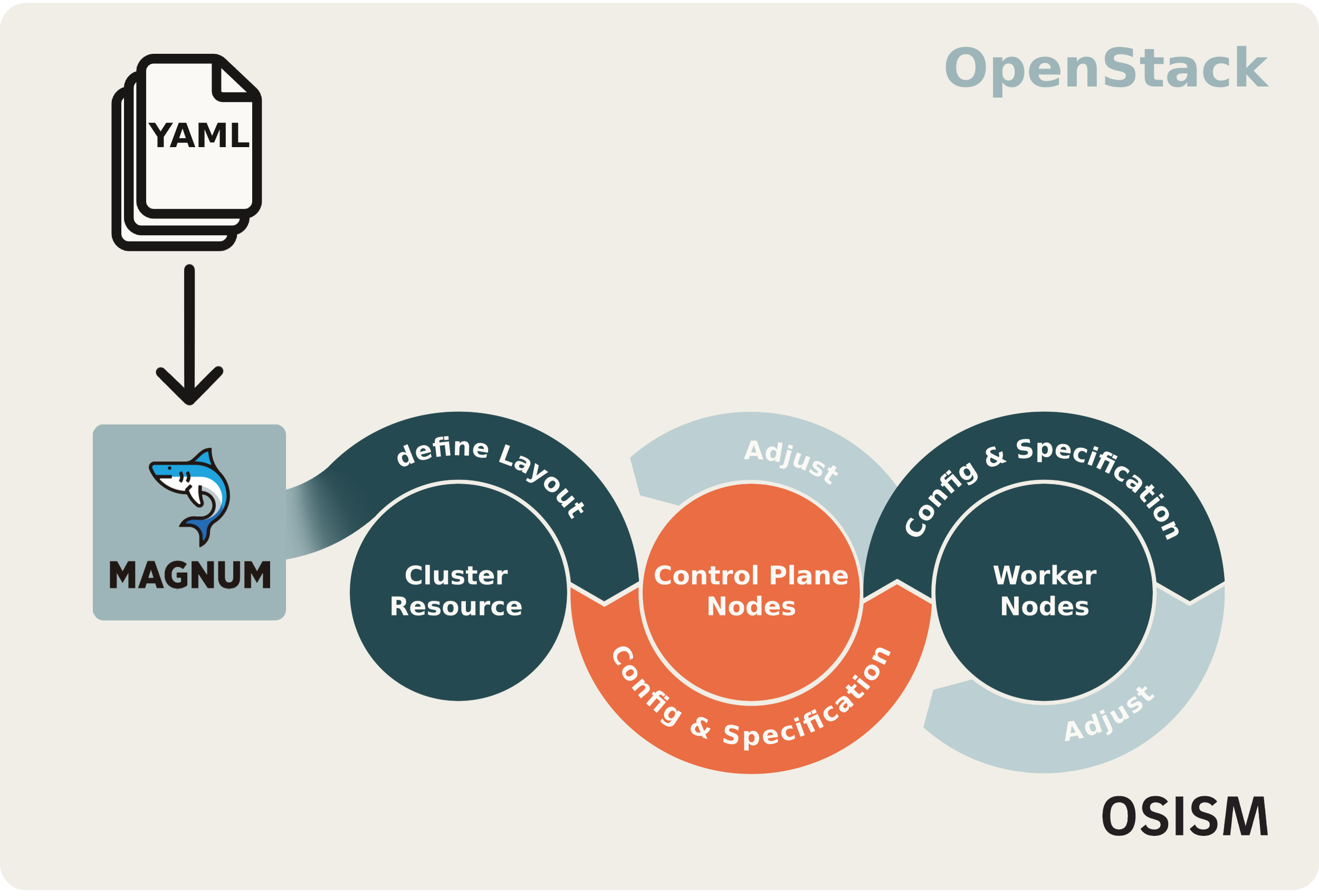Cluster API
Kubernetes as a Service (KaaS) is a cloud service model that simplifies the deployment, management and scaling of Kubernetes clusters. By abstracting the underlying infrastructure, KaaS allows organizations to focus on developing and deploying applications without the complexities of cluster management. One of the most powerful tools for implementing KaaS is the Cluster API, an official Kubernetes project that provides declarative APIs and tools for managing the lifecycle of Kubernetes clusters.
Benefits of Cluster API
- Declarative Cluster Management: Cluster API allows users to define the desired state of clusters using YAML manifests. This declarative approach simplifies the process of creating, updating, and deleting clusters, making it easier to automate and version control cluster configurations.
- Infrastructure Abstraction: Cluster API abstracts the underlying infrastructure, enabling the deployment of Kubernetes clusters across various environments, including public clouds (AWS, Azure, GCP), private clouds (OpenStack), and on-premises data centers. This abstraction ensures that the same API can be used regardless of the infrastructure provider.
- Consistent Lifecycle Management: Cluster API standardizes the lifecycle management of Kubernetes clusters, including provisioning, scaling, upgrading, and deletion. This consistency reduces operational overhead and ensures that clusters are managed uniformly across different environments.
- Extensibility and Customization: Cluster API’s modular architecture allows for extensibility through the use of custom resource definitions (CRDs) and controllers. Organizations can tailor the API to meet specific requirements, such as integrating with existing CI/CD pipelines or adding custom operational logic.
- Improved Operational Efficiency: By leveraging Cluster API, organizations can automate repetitive tasks, reduce human error, and ensure that clusters are configured according to best practices. This automation leads to increased operational efficiency and faster delivery of applications.
By using Kubernetes as a Service with Cluster API, organizations can achieve a highly automated, scalable and consistent approach to managing Kubernetes clusters across different environments. This allows them to focus more on application development, and less on the operational complexities of managing Kubernetes infrastructure.
Lifecycle Management of Cluster API in OSISM
Cluster API with OpenStack Magnum
In an OpenStack environment, Magnum takes YAML-manifests to define and deploy specifications for Kubernetes clusters. First, Cluster Resources get defined. After that, Control Plane Nodes and Worker Nodes are configured. If there are changes to the YAML-Manifests, Magnum will adjust the Nodes accordingly.

Cluster API with SCS Cluster Stacks
SCS Cluster Stacks works in multiple cloud environments. It takes YAML-manifests to define and deploy specifications for Kubernetes clusters. First, Cluster Resources get defined. After that, Control Plane Nodes and Worker Nodes are configured. If there are changes to the YAML-Manifests, SCS Cluster Stacks will adjust the Nodes accordingly.
